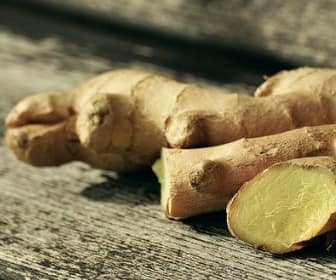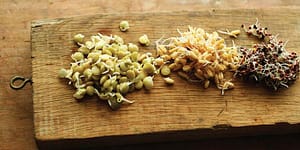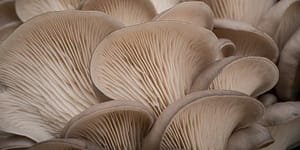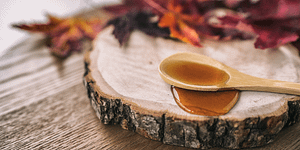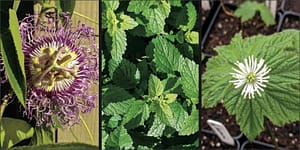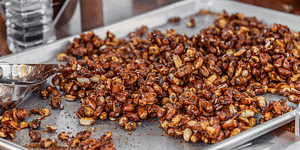A Recipe for Homemade Ginger Beer: The Old Fashioned Way

Ginger is a spice perfect for any time of year. Its fragrance can perk up everything from chai tea to apple pie. This humble root can also add a gentle kick of heat to stir-fries or soups.
The natural yeasts in the root can also be used to kick start a bubbly ginger beer. Give it a try!
The following is an excerpt from Wild Fermentation by Sandor Katz. It has been adapted for the web.
RECIPE: Homemade Ginger Beer
This Caribbean-style soft drink uses a “ginger bug” to start the fermentation. I got this idea from Sally Fallon’s Nourishing Traditions. The ginger bug is simply water, sugar, and grated ginger, which starts actively fermenting within a couple of days. This easy starter can be used as yeast in any alcohol ferment, or to start a sourdough.
This ginger beer is a soft drink, fermented just enough to create carbonation but not enough to contribute any appreciable level of alcohol. If the ginger is mild, kids love it.
Timeframe: 2 to 3 weeks
 Ingredients (for 1 gallon/4 liters):
Ingredients (for 1 gallon/4 liters):
- 3 inches/8 centimeters or more fresh gingerroot
- 2 cups/500 milliliters sugar
- 2 lemons (or limes)
- Water
Process:
- Start the “ginger bug”: Add 2 teaspoons (10 milliliters) grated ginger (skin and all) and 2 teaspoons (10 milliliters) sugar to 1 cup (250 milliliters) of water. Stir well and leave in a warm spot, covered with cheesecloth to allow free circulation of air while keeping flies out. Add this amount of ginger and sugar every day or two and stir, until the bug starts bubbling, in 2 days to about a week.
- Make the ginger beer any time after the bug becomes active. (If you wait more than a couple of days, keep feeding the bug fresh ginger and sugar every 2 days.) Boil 2 quarts (2 liters) of water. Add about 2 inches (5 centimeters) of gingerroot, grated, for a mild ginger flavor (up to 6 inches/15 centimeters for an intense ginger flavor) and 11/2 cups (375 milliliters) sugar. Boil this mixture for about 15 minutes. Cool.
- Once the ginger-sugar-water mixture has cooled, strain the ginger out and add the juice of the lemons (or limes) and the strained ginger bug. (If you intend to make this process an ongoing rhythm, reserve a few tablespoons of the active bug as a starter and replenish it with additional water, grated ginger, and sugar.) Add enough water to make 1 gallon (4 liters).
- Bottle in sealable bottles: Recycle plastic soda bottles with screw tops; rubber gasket “bail-top” bottles that Grolsch and some other premium beers use; sealable juice jugs; or capped beer bottles, as described in chapter 11. Leave bottles to ferment in a warm spot for about 2 weeks.
- Cool before opening. When you open ginger beer, be prepared with a glass, since carbonation can be strong and force liquid rushing out of the bottle.
Recommended Reads
Recent Articles
What’s so great about oyster mushrooms? First, you can add them to the list of foods that can be grown indoors! They are tasty, easy to grow, multiply fast, and they love a variety of substrates, making oyster mushrooms the premium choice. The following is an excerpt from Fresh Food from Small Spaces by R. J.…
Read MoreWant to start your own medicinal herb garden? Passionflower, lemon balm, and goldenseal are great places to begin! These herbs are jam-packed with medicinal properties and easy to grow in a majority of climates.
Read MoreCraving something sweet? These delicious maple roasted nuts are the perfect treat to help you push through those end-of-winter blues. The following is an excerpt from Full Moon Feast by Jessica Prentice. It has been adapted for the web. The Magic of Maple: A Rich History Following the Hunger Moon, just before the first thaw…
Read More
